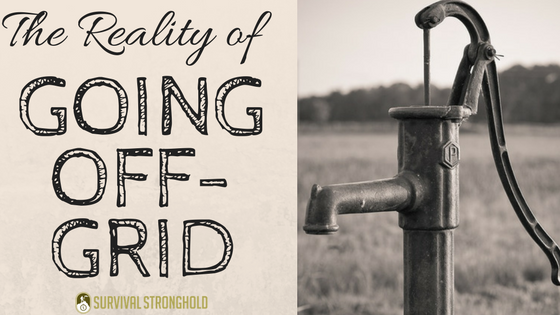If you’re a survivalist, prepper, or aspiring homesteader, one of your goals is probably to live off-grid. And it is certainly a wise goal to have; our global energy grids are growing increasingly precarious and connected to bigger and bigger networks, making them more likely to be shut down by events like a solar flare, EMP, or terroristic hacking. Not to mention, you probably get sick of shelling out high energy costs and taxes to large corporations of government entities, and want to be free and independent.
Going off-grid is great, but are you sure you’re really ready for it? I don’t ask this to deter anyone, since I highly recommend getting off-grid to whatever capacity you can.
Rather, I want to make sure anyone considering getting off-grid knows what they’re in for. Here is everything you have to take into account if you’d like to be completely off-grid:
- Cooking food
- Storing food
- Lighting
- Powering appliances
- Pumping water
- A water source
- Internet
- Phone service
- Laundry
- Bathing
- Cleaning
- First aid
- Basic sanitation
When you move completely off-grid, there are so many small aspects of life that you don’t necessarily think about that are impacted by no or low electrical power.
For example, pumping water. This is something most of us take for granted, as pressurized water comes out of our tap fairly easily. We can easily wash our hands, do the dishes, rinse things off that have become dirty, wash our cars, equipment, pets, spray down our driveway, irrigate a wound, etc. When you’re off-grid, however, if you have catchment water or a well, you’ll have to have some kind of mechanism that can apply pressure to water in order to use it in the same way. Not to mention big appliances like washing machines and dishwashers.
The cool thing about going off grid, of course, is that you can learn very quickly to work around these things, get creative and innovative, and learn to go without much of what modern life might have gotten you accustomed to.
Living off-grid isn’t easy, but it’s definitely worth it. You might really be willing to sacrifice a whole lot of modern conveniences for real independence, and the security of a simpler way of life when disaster strikes or grids go down is definitely worth more, in my opinion, than all the modern comfort in the world.


